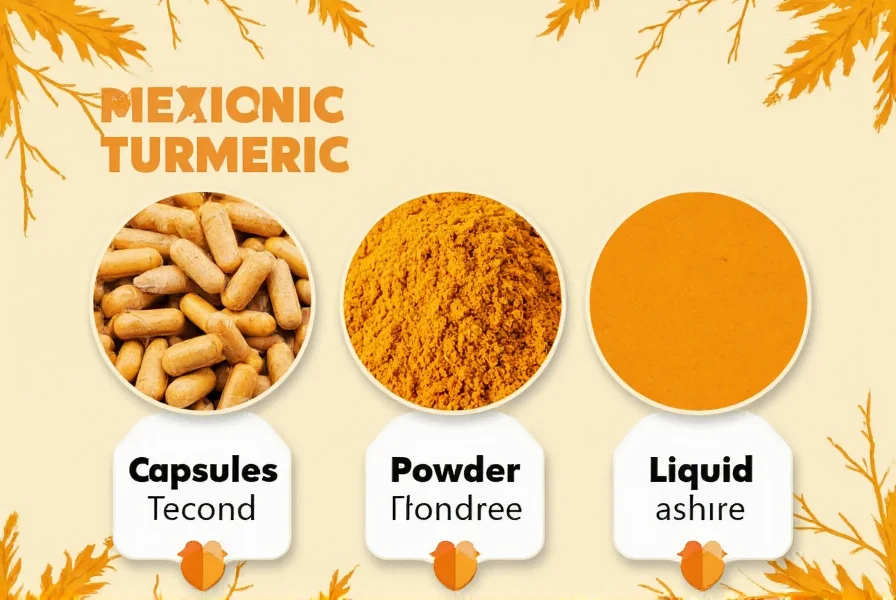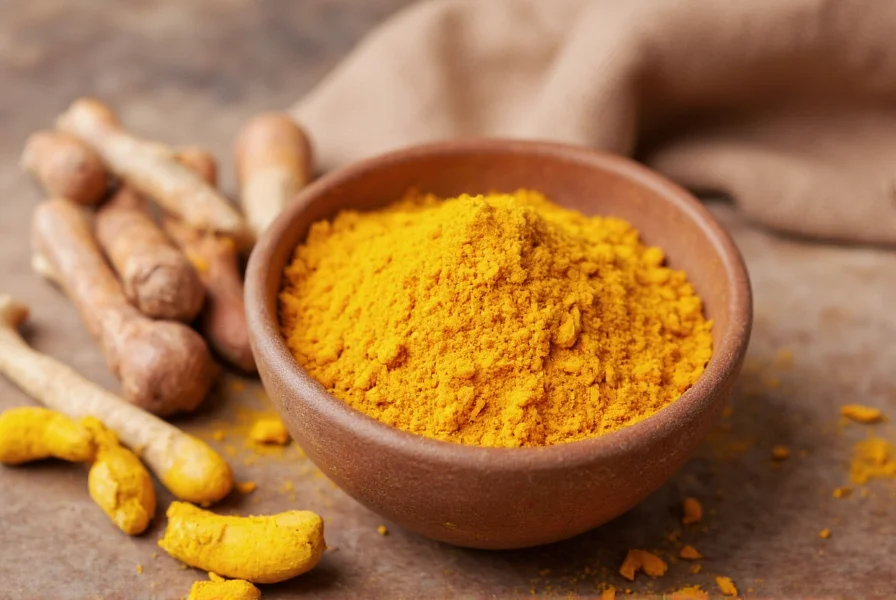Understanding Turmeric's Role in Arthritis Management
For centuries, turmeric has been used in traditional medicine systems across Asia for its healing properties. Modern science is now validating many of these traditional uses, particularly regarding inflammation and joint health. When examining turmeric for arthritis relief, it's essential to distinguish between the whole spice and its concentrated active components.
Turmeric contains curcuminoids, with curcumin being the most studied compound responsible for anti-inflammatory effects. However, raw turmeric contains only about 3% curcumin by weight, which explains why therapeutic benefits typically require concentrated supplements rather than culinary use alone.
The Science Behind Curcumin and Joint Inflammation
Curcumin works through multiple pathways to combat arthritis-related inflammation. Research published in the Journal of Medicinal Food demonstrates that curcumin inhibits key inflammatory molecules like NF-kB, COX-2, and various cytokines that contribute to joint damage in both osteoarthritis and rheumatoid arthritis.
Unlike nonsteroidal anti-inflammatory drugs (NSAIDs) that primarily target COX enzymes, curcumin's multi-target approach may provide broader anti-inflammatory effects with fewer gastrointestinal side effects. A 2016 meta-analysis in Phytotherapy Research concluded that curcumin supplementation significantly reduced pain and improved physical function in osteoarthritis patients compared to placebo.
| Study | Participants | Duration | Key Findings |
|---|---|---|---|
| Kuptniratsaikul et al. (2014) | 367 knee osteoarthritis patients | 4 weeks | Curcumin (1500mg/day) showed similar pain reduction to ibuprofen with fewer adverse events |
| Chandran & Goel (2012) | 45 rheumatoid arthritis patients | 8 weeks | Curcumin (500mg twice daily) significantly reduced disease activity scores compared to placebo |
| Zhang et al. (2016) meta-analysis | 8 randomized trials (n=963) | 4-16 weeks | Curcumin significantly improved WOMAC scores and reduced inflammatory markers |
Evaluating the Clinical Evidence for Arthritis Relief
While numerous studies support turmeric's potential benefits for arthritis, understanding the limitations of current research is crucial. Most clinical trials have relatively small sample sizes and short durations (typically 4-12 weeks). The variability in curcumin formulations also makes direct comparisons challenging.
For osteoarthritis, research suggests curcumin may be particularly effective for knee pain. A 2020 review in Nutrients reported that standardized curcumin extracts demonstrated comparable efficacy to common NSAIDs for pain relief, with better gastrointestinal tolerance. However, the authors noted that longer-term studies are needed to assess sustained benefits.
In rheumatoid arthritis, studies show curcumin may help reduce disease activity when used alongside conventional treatments. Research indicates it may work synergistically with methotrexate, potentially allowing for lower medication doses while maintaining effectiveness.
Practical Guidelines for Using Turmeric Effectively
Not all turmeric products deliver the same benefits. Understanding how to select and use turmeric properly is essential for experiencing potential arthritis relief:
Dosage Considerations
Research indicates effective doses typically range from 500-1500mg of standardized curcumin extract daily. Whole turmeric powder would require impractical amounts (tens of grams) to achieve similar concentrations. Most clinical studies use:
- For osteoarthritis: 1000-1500mg curcumin daily
- For rheumatoid arthritis: 500mg twice daily
Enhancing Bioavailability
Curcumin has notoriously poor absorption. To maximize benefits:
- Choose formulations with piperine (black pepper extract), which can increase absorption by up to 2000%
- Look for products containing phospholipids (meriva curcumin) or nanoparticles
- Take with healthy fats, as curcumin is fat-soluble

Realistic Timeframe for Results
Unlike NSAIDs that provide relatively quick pain relief, curcumin's effects build gradually. Most studies show noticeable improvements after 4-8 weeks of consistent use. Patience is essential when incorporating turmeric into an arthritis management plan.
Safety Profile and Potential Interactions
Turmeric is generally well-tolerated at recommended doses, but awareness of potential issues is important:
Common Side Effects
At high doses (above 1500mg daily), some people may experience:
- Mild digestive upset
- Nausea
- Diarrhea
Medication Interactions
Turmeric may interact with several common medications:
- Blood thinners: Curcumin has mild anticoagulant properties that may enhance effects of warfarin or other blood thinners
- Diabetes medications: May potentiate blood sugar-lowering effects
- Chemotherapy drugs: Potential interactions require medical supervision
Individuals with gallbladder issues should consult their healthcare provider before using turmeric supplements, as it may stimulate bile production.
Integrating Turmeric into a Comprehensive Arthritis Plan
Turmeric works best as part of a multifaceted approach to arthritis management. Consider these strategies for optimal results:
- Combine with other evidence-based approaches: Pair turmeric with weight management, appropriate exercise, and conventional treatments as recommended by your healthcare provider
- Track your symptoms: Maintain a symptom journal to objectively assess whether turmeric is providing benefits
- Quality matters: Select third-party tested supplements with verified curcumin content
- Be patient: Allow at least 8 weeks of consistent use before evaluating effectiveness
Remember that natural remedies like turmeric for arthritis pain relief should complement—not replace—conventional medical care. Always discuss new supplements with your healthcare provider, especially if you have underlying health conditions or take prescription medications.
Frequently Asked Questions About Turmeric and Arthritis
How long does it take for turmeric to work for arthritis pain?
Most clinical studies show noticeable improvements in arthritis symptoms after 4-8 weeks of consistent use at appropriate doses (typically 500-1500mg of standardized curcumin daily). Unlike NSAIDs that provide relatively quick pain relief, curcumin's anti-inflammatory effects build gradually as it modulates multiple inflammatory pathways.
Can I use regular turmeric spice from my kitchen for arthritis relief?
While culinary turmeric contains beneficial compounds, the curcumin concentration is too low (about 3% by weight) to provide therapeutic effects for arthritis. You would need to consume impractical amounts (tens of grams daily) to match the doses used in clinical studies. For arthritis management, standardized curcumin supplements with enhanced bioavailability are recommended over culinary turmeric.
What's the difference between turmeric and curcumin for joint pain?
Turmeric is the whole spice derived from the Curcuma longa plant, while curcumin is the specific compound within turmeric responsible for most anti-inflammatory effects. Curcumin makes up only about 3% of raw turmeric. Most research on arthritis focuses on concentrated curcumin extracts (95% curcuminoids) because they deliver sufficient therapeutic doses. Whole turmeric contains other beneficial compounds, but curcumin is the primary component studied for joint inflammation.
Are there specific turmeric supplements that work best for arthritis?
Look for supplements containing standardized curcumin extracts (typically 95% curcuminoids) with enhanced bioavailability. Formulations combining curcumin with piperine (black pepper extract), phospholipids (meriva curcumin), or nanoparticles show better absorption. Third-party tested products with verified potency and purity are recommended. The most studied formulations in arthritis research include BCM-95, Meriva, and Longvida.
Can turmeric replace my arthritis medications?
No, turmeric should not replace prescribed arthritis medications without consulting your healthcare provider. Research shows it works best as a complementary approach alongside conventional treatments. Some studies suggest it may allow for reduced medication doses in certain cases, but this should only be done under medical supervision. Always discuss any changes to your treatment plan with your doctor.











 浙公网安备
33010002000092号
浙公网安备
33010002000092号 浙B2-20120091-4
浙B2-20120091-4